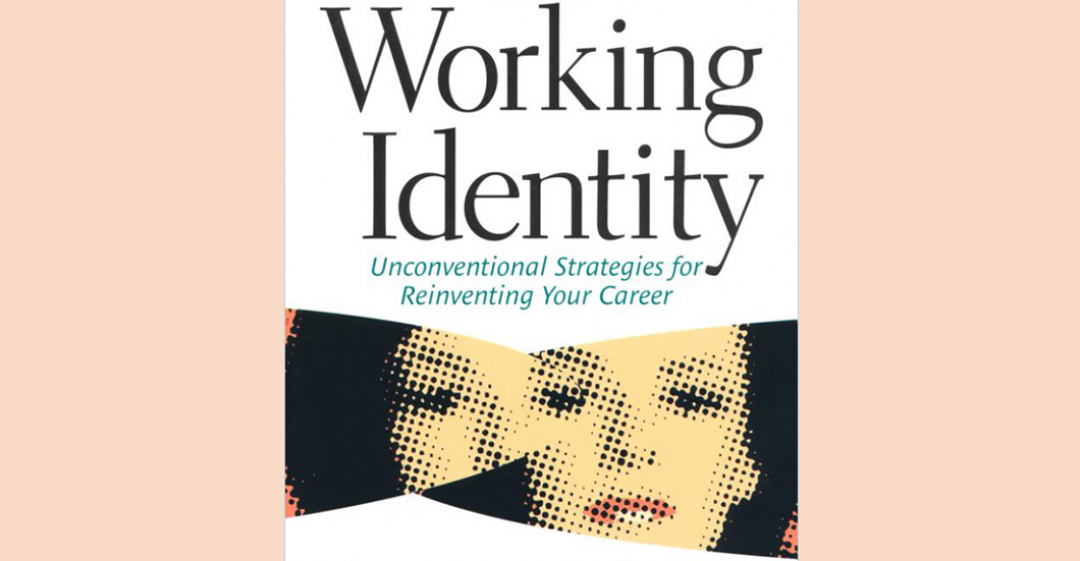
‘Working Identity’ is a refreshing blast of attention aimed where career-changers need it most: the arid and lonely landscape of In-Between.
Ibarra draws attention to the emotionally-laden fact often overlooked by career-change books: that changing careers is actually a process of changing identity.
What we do for a living is such a central theme in our life-stories, she says, that a transformation in our working lives shakes the very bedrock of who we know ourselves to be.
While most career-change guides carry a breezy optimism, implying that finding work we love should be a painless process sped up by simple actions, Ibarra acknowledges the reality of what can often be a long and tumultuous journey.
‘Working Identity’ focuses on the psychological process of transition itself, laying bare the lengthy tangle of confusion at the heart of change.
Far from casting it in a systematic, manageable and pain-free light, she speaks of transformation as most of us experience it; a long and tentative exploration, full of false starts and small triumphs.
"We like to think that we can leap directly from a desire for change to a single decision that will complete our ‘reinvention’. As a result, we remain naïve about the long, essential testing period where our actions transform fuzzy, undefined possibilities into concrete choices we can evaluate."
Honest, optimistic and empathetic, she honours the struggle of transition itself and then gives us an insight into methods for its successful navigation, using 39 compelling case studies to turn conventional cookie-cutter strategies inside out.
We’re left with a new perspective on how to pilot the process of change in our working lives, punctuated by relief-filled ‘of course!’ moments with every turn of the page.
For anyone considering a major career-change, this book is by far the most true-to-experience resource I’ve come across.
Those looking for a quick-fix how-to guide would be better off with this. But as Ibarra warns, beware of the shortcuts; they often lead you back to where you started from.
Top Takeaways
Act your way into a new way of thinking and being. You cannot discover yourself by introspection. Start by changing what you do. Try different paths. Take action, and then use the feedback from your actions to figure out what you think, feel, and want. Don’t try to analyse or plan your way into a new career. Conventional strategies advocated by self-assessment manuals and traditional career counsellors would have you start by looking inside. Start instead by stepping out. Be attentive to what each step teaches you, and make sure that each step helps you take the next.
Stop trying to find your one true self. Focus your attention on which of your many possible selves you want to test and learn more about. Reflection is important. But we can use it as a defence against testing reality; reflecting on who we are is less important than probing whether we really want what we think we want. Rather than having a constant Self inside of us, we are made up of hundreds of possible Selves, which coexist in a time of transition. Acting in the world gives us the opportunity to see our Selves through our behaviours, and allows us to adjust our expectations as we learn. In failing to act, we hide from ourselves.
Allow yourself a transition period in which it is okay to oscillate between holding on and letting go. Better to live the contradictions than to come to a premature resolution. The years preceding a career change necessarily involve difficulty, turmoil, confusion, and uncertainty. One of the hardest tasks of reinvention is staying the course when it feels like you are coming undone. Unfortunately, there is no alternative but foreclosure—retreating from change either by staying put or taking the wrong next job. Watch out for decisions made in haste, especially when it comes to unsolicited offers. It takes a while to move from old to new. Those who try to short-circuit the process often just end up taking longer.
Identify projects that can help you get a feel for a new line of work or style of working. Try to do these as extracurricular activities or parallel paths so that you can experiment seriously without making a commitment. Think in terms of side projects and temporary assignments, not binding decisions. Pursue these activities seriously, but delay commitment. Slowly ascertain your enduring values and preferences, what makes you unique in the world. Just make sure that you vary your experiments, so that you can compare and contrast experiences before you narrow your options.
